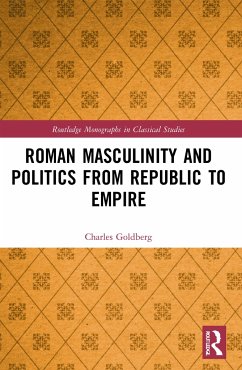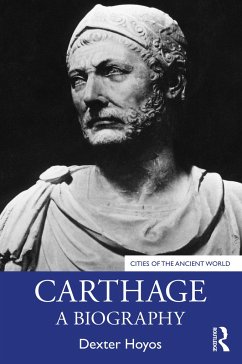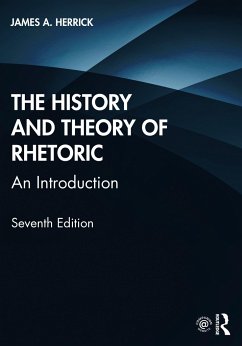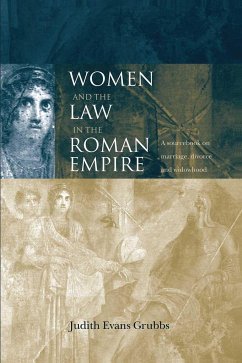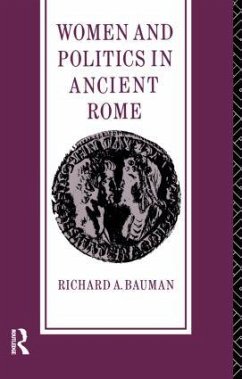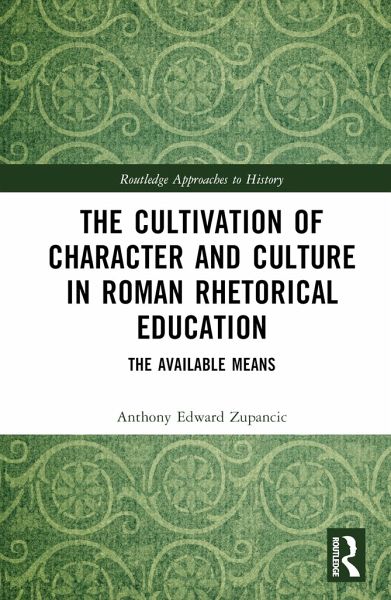
The Cultivation of Character and Culture in Roman Rhetorical Education
The Available Means
Versandkostenfrei!
Versandfertig in 6-10 Tagen
154,99 €
inkl. MwSt.
Weitere Ausgaben:

PAYBACK Punkte
77 °P sammeln!
At its very center, The Cultivation of Character and Culture in Roman Rhetorical Education: The Available Means is a study of the subtle, organic ways that rhetoric can work to cultivate a particular character. This is an extension of the current work in composition studies, which focus on the ways that writing instruction contributes to the development of individual power and agency in students, combined with an ancient understanding of the ways that students learned to act within a particular, accepted cultural framework.It recognizes and reclaims a lost dimension of rhetoric, a dimension th...
At its very center, The Cultivation of Character and Culture in Roman Rhetorical Education: The Available Means is a study of the subtle, organic ways that rhetoric can work to cultivate a particular character. This is an extension of the current work in composition studies, which focus on the ways that writing instruction contributes to the development of individual power and agency in students, combined with an ancient understanding of the ways that students learned to act within a particular, accepted cultural framework.
It recognizes and reclaims a lost dimension of rhetoric, a dimension that is conceptually linked to the martial culture of the ancient world, to show how ancient rhetorical theory framed the discipline as an education in thinking, speaking, and acting in ways that were necessary to be both a persuasive speaker and an effective leader. Through close readings and analysis of particular rhetorical exercises, the book shows how rhetorical education shaped characters that were appropriate in the eyes of the dominant culture but were also capable of working independently to progressively alter that culture.
In showing the ways that rhetorical education shaped a particular character, the book demonstrates the ways that the combination character, culture, and virtue are vital to leadership in any time.
It recognizes and reclaims a lost dimension of rhetoric, a dimension that is conceptually linked to the martial culture of the ancient world, to show how ancient rhetorical theory framed the discipline as an education in thinking, speaking, and acting in ways that were necessary to be both a persuasive speaker and an effective leader. Through close readings and analysis of particular rhetorical exercises, the book shows how rhetorical education shaped characters that were appropriate in the eyes of the dominant culture but were also capable of working independently to progressively alter that culture.
In showing the ways that rhetorical education shaped a particular character, the book demonstrates the ways that the combination character, culture, and virtue are vital to leadership in any time.




